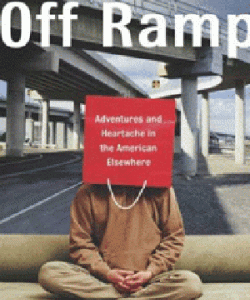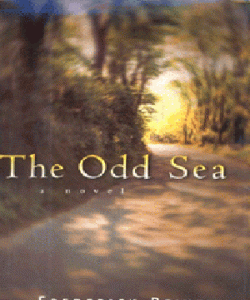Cloud Atlas and The Master Among Booker Finalists
Jump to navigation Skip to content

For the past fourteen years, Hank Stuever, a two-time Pulitzer Prize finalist, has published his unique brand of creative nonfiction in the form of newspaper articles in the Albuquerque Tribune, Austin American-Statesman, and the Washington Post. The subjects of his articles—haunted waterbed stores, plastic lawn chairs, beauty pageants, and discount funeral homes among them—hardly seem fodder for probing essays on the American psyche. But what might fall into the realm of light comedy for many writers takes on a lyrical profundity in Stuever’s work.
Next month, Norton will publish Stephen Dunn’s thirteenth book of poetry, The Insistence of Beauty, his second offering since his Different Hours won the 2001 Pulitzer Prize. In a writing career that has spanned three decades, Dunn has also been honored with the Academy Award for Literature from the American Academy of Arts & Letters, the James Wright Prize from the Mid-American Review, and the Levinson Award from Poetry magazine, as well as fellowships from the National Endowment for the Arts, the New Jersey State Council on the Arts, and the Guggenheim Foundation. He divides his time between Frostburg, Maryland, and Pomona, New Jersey, where he teaches creative writing at Richard Stockton College.
Richard Howard is rarely at a loss for words. The poet, essayist, translator, editor, and professor is a tireless conversationalist who is always willing to supply a strong opinion on the many subjects to which he has applied his talents during a career that spans four decades.
In his introduction to The Anchor Book of New American Short Stories, editor Ben Marcus writers, "If we are made by what we read, if language truly builds people into what they are, how they think, the depth with which they feel, then these stories are, to me, premium material for that construction project. You could build a civilization with them." The 473-page anthology includes stories by George Saunders, David Foster Wallace, Anthony Doerr, Jhumpa Lahiri, Anne Carson, Gary Lutz, and more than 20 others.

Brian Chikwava, a fiction writer who was born in Bulawayo, Zimbabwe, won the 2004 Caine Prize for African writing for his story "Seventh Street Alchemy."
Ballantine Books recently published You Remind Me of Me, Dan Chaon's long awaited debut novel about a pregnant teenager who gives up her child for adoption in 1966. In a review in the New York Times Sunday Book Review, Sara Mosley wrote that the novel "more than fulfills the promise of his story collection Among the Missing, which was a finalist for a National Book Award in 2001." Chaon is also the author of Fitting Ends, originally published by Triquarterly Books in 1995. A revised edition of the short story collection was published by Ballantine last year. Chaon teaches at Oberlin College and lives with his wife and two sons in Cleveland, Ohio.

While the literary community tries to gauge the influence of academia on the state of contemporary fiction, Frederick Reiken, whose two critically acclaimed novels have been translated into several languages, is gently riding out the wave of debate. A graduate of Princeton and the University of California at Irvine's MFA program, Reiken teaches writing in the graduate program at Emerson College. His first novel, The Odd Sea (Harcourt, 1998), won the Hackney Literary Award for First Fiction and was selected by both Booklist and Library Journal as one of the best first novels of the year. This was followed by a more ambitious novel, The Lost Legends of New Jersey (Harcourt, 2000), which became a bestseller and is described by Charles Baxter as "a miraculous balancing of tone and theme."